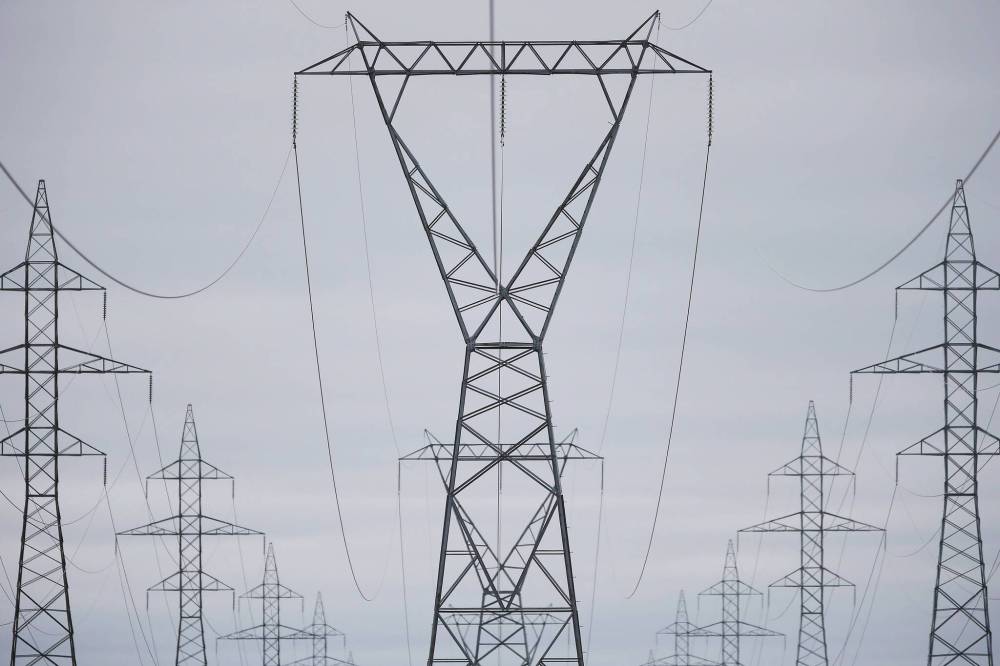B.C. puts the brakes on power exploiters
Advertisement
Read this article for free:
or
Already have an account? Log in here »
To continue reading, please subscribe:
Monthly Digital Subscription
$0 for the first 4 weeks*
- Enjoy unlimited reading on winnipegfreepress.com
- Read the E-Edition, our digital replica newspaper
- Access News Break, our award-winning app
- Play interactive puzzles
*No charge for 4 weeks then price increases to the regular rate of $19.00 plus GST every four weeks. Offer available to new and qualified returning subscribers only. Cancel any time.
Monthly Digital Subscription
$4.75/week*
- Enjoy unlimited reading on winnipegfreepress.com
- Read the E-Edition, our digital replica newspaper
- Access News Break, our award-winning app
- Play interactive puzzles
*Billed as $19 plus GST every four weeks. Cancel any time.
To continue reading, please subscribe:
Add Free Press access to your Brandon Sun subscription for only an additional
$1 for the first 4 weeks*
*Your next subscription payment will increase by $1.00 and you will be charged $16.99 plus GST for four weeks. After four weeks, your payment will increase to $23.99 plus GST every four weeks.
Read unlimited articles for free today:
or
Already have an account? Log in here »
Regulated electrical power is a little bit like, well, socialism.
Generating power and delivering it through a grid is an expensive process, and the way it all happens involves spreading the costs, and the benefits, across the entire rate base. You don’t pay for the entirety of a Keeyask hydro project: you pay your share, relative to the amount of electricity you use, spread out over years.
The regulators oversee that utilities spending is kept in check, that empires are not built on the ratepayers’ backs and that those same utilities make money, within a reasonable rate of return.

john woods / THE CANADIAN PRESS Files
Manitoba Hydro power lines outside Winnipeg.
When more power is needed, more generating capacity (or more purchased power from other sources) has to be found. That’s an ever-more expensive process, but regulated power systems still share much of that cost across all customers, building construction and maintenance costs into rate increases.
Most customers stay put, a captive market, and don’t get any real choice about where they buy their electric power.
But not so server farms, data centres and blockchain miners. They can go where power’s cheap to power their server farmers, and when it isn’t cheap anymore, they can relatively easily pull up stakes and leave, leaving the increased costs behind for everyone else to carry.
They don’t create significant jobs or products, and realistically, you can argue they’re simply monetizing cheap power for their own profit.
That’s just stopped in British Columbia: after a few years of a temporary ban on power-hungry data centres, BC Hydro is bringing in a permanent ban on crypto miners and a cap on power allotments for data centres, citing “disproportionate energy consumption and limited economic benefit.”
Artificial intelligence server farms will be capped at a block of 300 megawatts, and 100 megawatts for data centres. (Manitoba Hydro paused new crypto miners in 2022. The pause currently ends in April 2026.)
B.C.’s energy ministry put it succinctly: “Other jurisdictions have been challenged to address electricity demands from emerging sectors and, in many cases, have placed significant rate increases on the backs of ratepayers.”
Some jurisdictions, like Alberta, see data centres and crypto miners as a cash cow and a ready market for electricity from their fossil fuels. But the downsides for ordinary ratepayers can be hefty.
As a recent New Yorker article pointed out, using AI to write a single college term paper takes the equivalent amount of power as running a microwave on full power for three minutes. Eight hundred million people use ChatGPT every week. Do the math — no, wait, you’ll probably have a program do the math for you.
But when demand outstrips supply? A Bloomberg analysis found that near data centres in the U.S., wholesale power rates have risen by more than 200 per cent in the last five years.
As to the economic benefits of AI server farms, it’s probably worth pointing out that every time they displace a wage-earning human, that human won’t have wages to inject into the economy for groceries or clothes, or to pay taxes. AI firms will benefit, but as we’ve seen with global firms like Google and Meta, their ability to avoid paying their share of the costs of the social compact is downright masterful.
It’s galling to think we’d be subsidizing their utility rates as well. It would add insult to injury if power rates rise, data users flee and we end up getting the bills regardless — including the costs of new generating capacity.
All of this is a way of saying that British Columbia may well have a point.
Managed utility development, with a keen eye on risk, beats betting all-in on what could be a market bubble.
If you build it, they may come. They may also just as easily leave.


